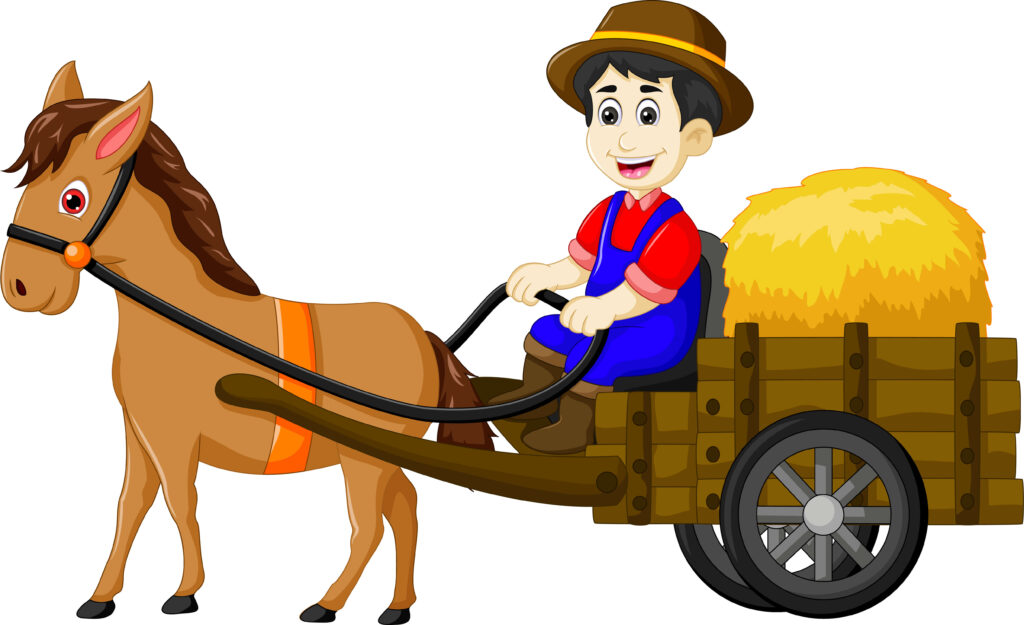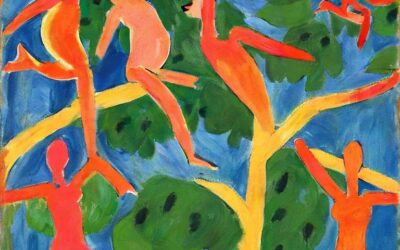“Everything will be ok in the end. And if it’s not ok. It’s not the end.”
– John Lennon
Change…it never stops throwing us curveballs and rattling our plans. And change is inherently imbued with uncertainty.
We’re often told to embrace uncertainty or at least not to fight it. But that’s only part of the picture. I’m here to tell you that your instincts to control the uncontrollable are normal, healthy, and wise. The only hitch is that they’re destined to fail. So, today, let’s look at the roots of uncertainty, the desire for stability, and the hidden magic that uncertainty can bring.
This morning, one of my friends sent a text informing our group that her husband has COVID. There was no chance of contagion in this group of zoom friends. I call these messages ‘warm-hug CTAs (call to actions),’ and throughout the pandemic, each of us has rallied for each other in CTA-response – sending love, good wishes, positive reframes, and logistical support. These CTAs all have an underlying theme: certainty’s been knocked off its keister. Uncertainty looms.
I received this warm-hug clarion call while editing a dharma talk I wrote on this very topic – uncertainty, and particularly its relationship with anxiety. It made me reflect on the good old days – just 2 years ago – when catching a bug meant a few miserable days in bed. Now, even this mild COVID case can be worry-inducing. Will my friend and her son be the next victims? How much quarantining is possible and wise? Fifty percent of patients with mild infection will go on to contend with a constellation of long-haul symptoms lasting, on average, 15 months. Just how worried should I be?
Is simple uncertainty gone for good? The kind where we could metaphorically avert our eyes and it would pass?
Surely not. Uncertainties large and small dominate this existence. But these past couple of years have provided an unwelcome kick-in-the-gut tutorial: Learn to face uncertainty head-on and with grace or your life will be very, very hard.
All of this relates to the Buddha’s teachings on impermanence. Simply put, nothing stays the same. That’s the inherent nature of things. All of life’s a weather system – continually moving through. In Buddhist psychology, the cause of suffering is clinging to things that aren’t permanent – that is, everything.
This brings me to the Taoist Farmer Parable that I’ve heard a zillion times – at least once from every teacher with whom I’ve studied. In the great tradition of imitating our role models, I’ll share it with you now. Because stories are the best teachers.
The Taoist Farmer Parable
In ancient China, there lived a farmer who owned a horse. “You are so lucky!” his neighbors told him, “to have a horse to pull the cart for you.” “Maybe,” the farmer replied.
One day the farmer failed to close his gate properly and the horse ran away. “Oh no! That is terrible news!” his neighbors cried. “Such bad luck!” “Maybe,” the farmer replied.
A few days later the horse returned, bringing with it six wild horses. “How fantastic! You are so lucky. Now you are rich!” his neighbors told him. “Maybe,” the farmer replied.
The following week the farmer’s son was breaking in one of the wild horses when it threw him, breaking his leg. “Oh no!” the neighbors cried. “Such bad luck, all over again!” “Maybe,” the farmer replied.
The next day, soldiers came and took away all the young men to fight in a war. The farmer’s son was left behind due to his injury. “You are so lucky!” his neighbors cried. “Maybe,” the farmer replied.
The lesson of the story circles around supposition. We never truly know how a situation will turn out. Labeling an event as a disaster when it could just as well turn into an opportunity doesn’t serve us. And labels prime us to respond to circumstances in particular ways that will either be helpful or harmful. If I see an opportunity, I run towards it. If I see a disaster, I run away. How about you?
This little lesson is a look inside the truth of uncertainty: with the right mindset, everything is uncertain. And almost everything can be turned into an opportunity.

The Absurdity of Pat Answers
There’s something both creepy and glorious about our Taoist farmer. He’s got a kind of weird calm that smacks of Xanax at too high a dose. I mean, there’s chill…and then there’s chill.
This is what mindfulness can supposedly do for you. Make you weird? Well, yes, possibly. But also, make you equanimous – basically, impossible to rattle. Our farmer groks that the future is unknowable – that everything is context-dependent and little is purely and obviously ‘good’ or ‘bad.’
So, now that you get the message, you can sit on a mountaintop and meditate for a few decades and hopefully achieve the behavior that matches the knowledge.
Or, you can accept that no parable or pat phrase will instantly transform uncertainty-related anxiety into zen attitudes.
Here’s the reality: It ain’t you, it’s your brain. The brain hates uncertainty and the possibility of getting something wrong. In its basic animal instinct, uncertainty equals danger and death. When we’re faced with uncertainty, it automagically releases neurochemicals that trigger anxiety and fear. It’s telling us point-blank: retreat to safety. And, just to further complicate things, when the fear portion of the brain, the amygdala, is activated, the parts of the brain responsible for focus, concentration, and creativity – all the elements that make for solid decision-making – go offline. Hence, the confusion, distraction, or brain fog you may feel when uncertainty strikes.
All that said, The Taoist Farmer is best understood as aspirational. In a perfect world, perhaps we would all go through our days unruffled by change, knowing that “if it’s not ok, it’s not the end.” In reality, most of us feel the ground shake when circumstances shift. At those times remember the Taoist Farmer and try to be a bit more like him. You might not be the farmer, but you can remember the farmer at this moment.
You’re Doing it Right
A key component of anxiety is the desire to control all variables – to eliminate uncertainty. The major models of psychotherapy consider these efforts to be pathological. Mindfulness meditation often delivers the same message: trying to control is ‘grasping’ or ‘aversion’ and it is bad. It is human but it is bad. It is the thing to learn to release.
I disagree with the entire premise. Wanting to control uncertainty is healthy and adaptive. We are animals. Animals fight to stay alive…on instinct. And uncertainty threatens our stability by definition. When we know what’s going to happen we can stay safe. When we don’t know what’s going to happen, well…it’s a flashing neon sign: “danger.” So, all we’re trying to do when we attempt to manage uncertainty is stay safe and well.
Unfortunately, trying to manage all life’s uncertainties has clear negative side effects, not the least of which is that it can’t be done. So, those of us who are prone to anxiety need to learn to tolerate uncertainty and, perhaps, even embrace it.
Learning to Embrace Uncertainty
“The quest for certainty blocks the search for meaning. Uncertainty is the very condition to impel man to unfold his powers.”
– Erich Fromm
One of the most healing ways to work towards acceptance of uncertainty is to first understand its wonder. It’s impossible to be an engaged, creative person without it. Uncertainty is the soup from which curiosity emerges. It’s also impossible to feel awe without uncertainty. Certainty is safe and steady and flat-lined. Uncertainty allows for surprise and wonder. That’s the reason to embrace it – not because the desire to keep life normal and steady is pathological or bad.
Once we have a compelling reason to embrace uncertainty, then there’s the arduous task of learning to do so. This is hard for almost everyone.
How does it sit with you when change occurs – especially when it descends unbidden, without your express permission?
I’m leaving you today with a few tools to help you navigate change with greater ease. These practices can take you from anxious to even. But they can also take you all the way to awe. Remember that when we can stay grounded, uncertainty opens up opportunities for surprise, wonder, curiosity, and creativity. So dive in. And enjoy.
🧠 Mindfulness
The best place to start? The body. In any given moment, and even if we don’t notice, we are in the body. So, it’s always available as a support.
Some folks find the body a challenging place to focus attention, but this exercise is particularly accessible because it’s a brief, light dip into embodiment.
Here’s the thing: wherever your mind is at, the body is always in the present moment.
Take a second or two, and focus on the fingers of one hand. Notice what’s there. Is there tingling, cold, heat, trembling, numbness? If there’s nothing, just notice what nothing feels like.
Boom. A moment of mindfulness = a moment of certainty. This is simply what is.
📓 Journaling
Consider a current or past situation. Pick up your metaphorical notebook and interview your anxiety like a journalist – objectively, kindly, and on the hunt for facts:
- How do you face uncertainty?
- When faced with uncertainy, what do you feel in your body?
- What are the emotions?
- What are the stories you tell yourself?
This will give you a baseline sense of your relationship with uncertainty. And if you repeat this exercise – and I recommend doing so on a monthly basis – you’ll begin to see shifts in awareness, attitudes, and actions. Because being mindful of the experience is the first step toward change. And your anxiety deserves to be heard, just like every other emotion.
🧘🏽♀️ Mindfulness Meditation
Mindfulness meditation – also referred to as Insight Meditation or Vipassana – is built for this process. The premise is that the only thing we can truly know for certain is what’s occurring in this present moment – what we’re experiencing through our senses, including our thoughts and feelings. While meditating, we practice being fully present in this moment…and this moment…and this moment. And the more we practice, the more easily we return to our direct experience in any moment out there in the world, when we feel unbalanced by uncertainty.
Try this favorite of mine, delivered by my beloved teacher, Hugh Byrne.





0 Comments